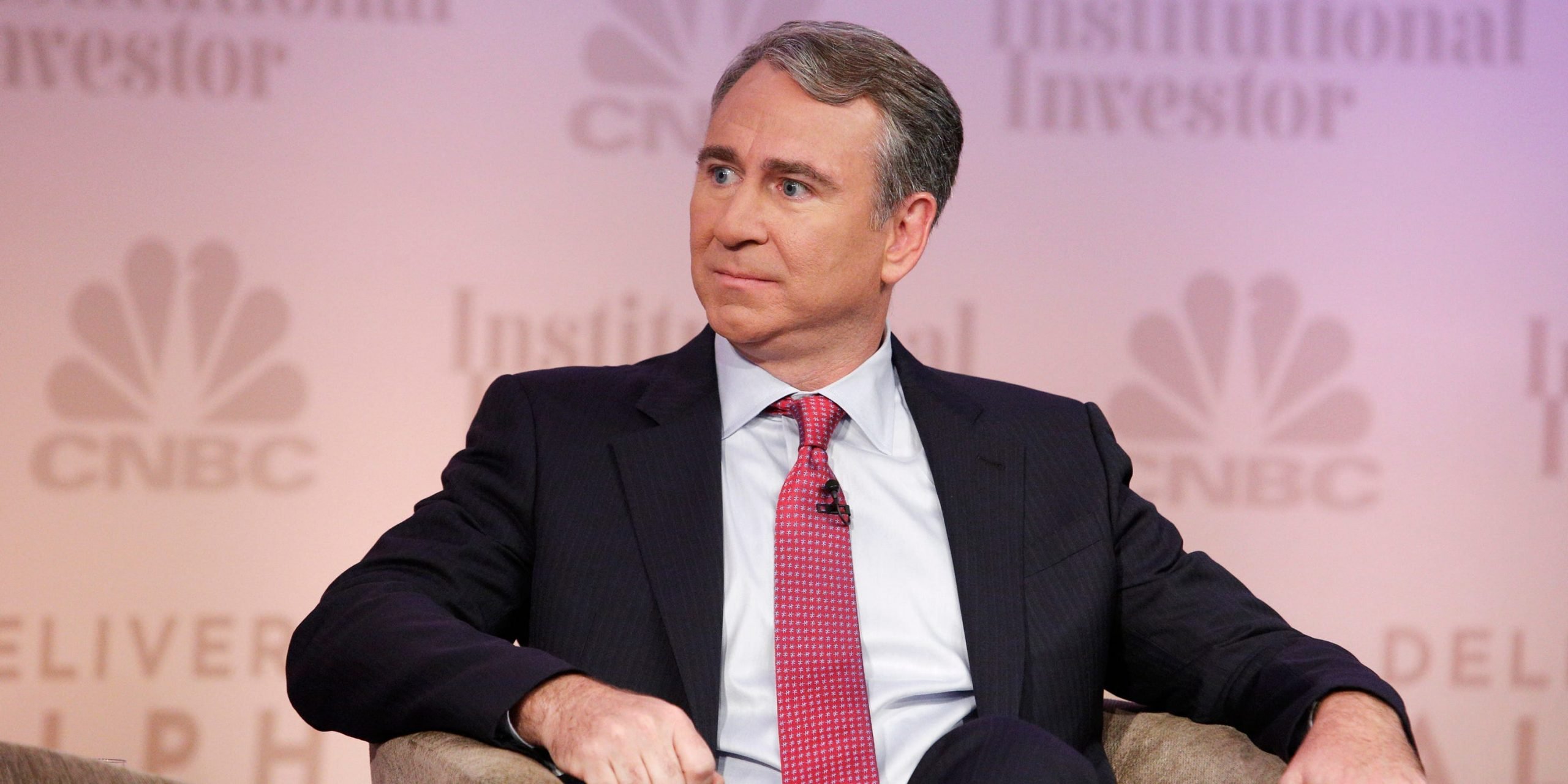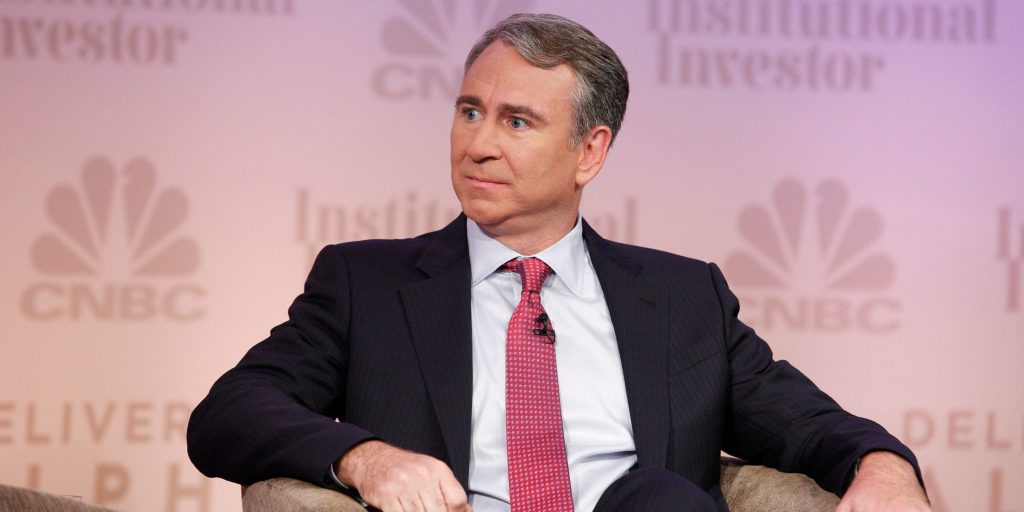
Heidi Gutman/CNBC/NBCU Photo Bank/NBCUniversal via Getty Images
- Citadel's Ken Griffin discussed the payment-for-order-flow model and cryptocurrencies Monday.
- He said he'd be "quite fine" with a ban on payment for order flow, saying it's a cost to his firm.
- As for crypto, he said his firm doesn't trade in it because of "regulatory uncertainty."
- See more stories on Insider's business page.
Citadel founder Ken Griffin said Monday he'd be "quite fine" with a legislative ban on payment for order flow – the controversial practice used by brokers such as Robinhood to provide free trading.
"Payment for order flow is a cost to me," he said at the Economic Club of Chicago. "So if you're going to tell me that by regulatory fiat that one of my major items expense disappears, I'm OK with that."
In the payment-for-order-flow model, market makers such as Griffin's Citadel Securities execute trades for retail investors on apps like Robinhood and collect on the difference between the bid and ask price.
The practice has come under scrutiny this year after Robinhood halted buying of meme stocks like GameStop and AMC in January. Retail traders renewed their anger over it recently after a new lawsuit was filed, alleging Griffin and Robinhood Chief Executive Officer Vlad Tenev conspired to stop the meme-stock rally. On Twitter, Citadel Securities once again denied the claims.
Despite saying he'd be OK with a ban on the payment-for-order-flow model, Griffin praised Robinhood and other brokers for "democratizing finance in America" and said retail traders have been able to join the markets in part thanks to free trading.
"From my vantage point, we want to hold onto this democratization of finance that's taken place," he said. "If payment for order flow helps to maintain that as a reality, I think that's good for everybody."
When asked about cryptocurrencies such as bitcoin, Griffin made a jab at the environmental harm. He also said his firm doesn't trade digital currencies because of the "regulatory uncertainty."
US Securities and Exchange Commission Chair Gary Gensler has said he's working with other government bodies to come up with a regulatory framework for the new asset class. Thoughtful regulation around crypto will make it a smaller market with "less people involved who are just trying to make a quick buck," Griffin said.

